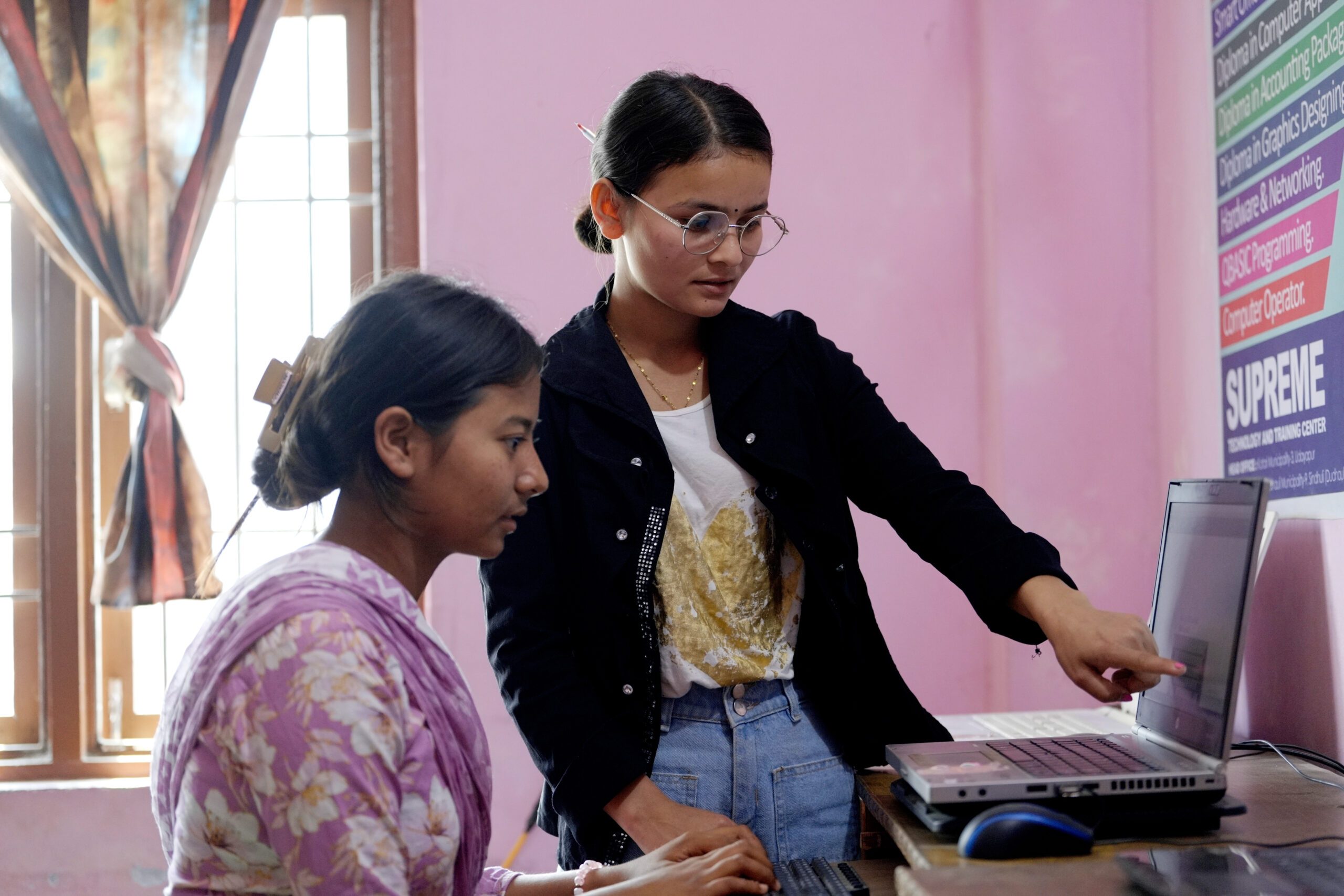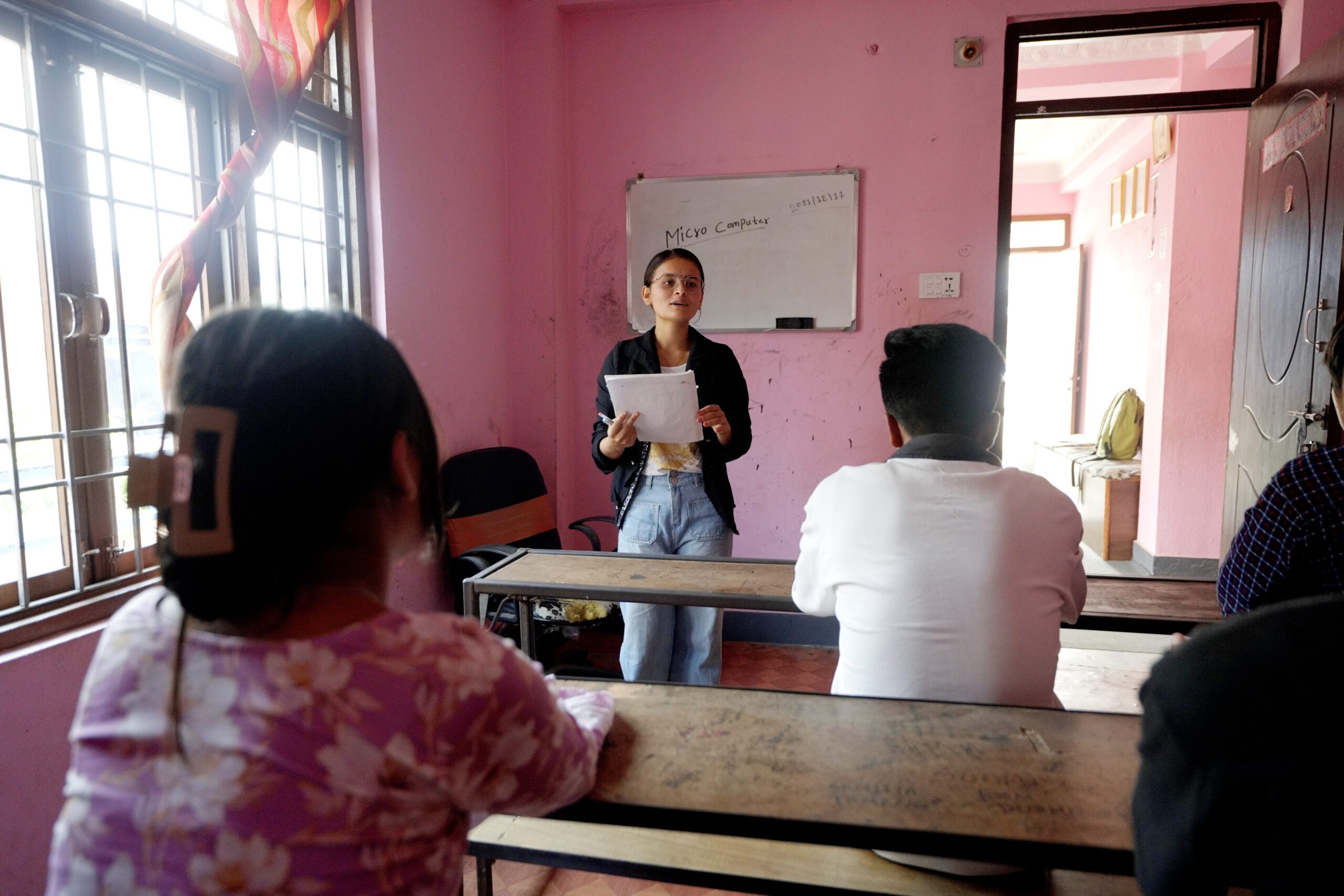From home to classroom- Sabitra’s story
In Sindhuli, where many girls are married before they turn 20, Sabitra chose a different path. At 19, she is a computer instructor, earning her own income, supporting her family, and proving that girls can build their future before marriage.

Sindhuli is one of the districts in Nepal where child, early, and forced marriage is still common. Many girls are married before they turn 20, often before they can finish school. Sabitra says, “I know, because I was at risk too. My parents were under pressure to arrange my marriage, but I wanted something different. I wanted to learn, to earn, and to make my own choices.”
“I know, because I was at risk too. My parent were under pressure to arrange my marriage, but I wanted something different. I wanted to learn, to earn, and to make my own choices.”
Sabitra
From home to classroom
Sabitra was at risk of child marriage, but she is focusing on education, independence, and supporting her family while claiming control over her own life.
Her father is a farmer, tending a small plot of land that provides just enough to feed the family, while her mother manages diabetes and high blood pressure. Household expenses are often overwhelming, and in these challenging times, Sabitra’s income provides crucial relief.
“Before I started earning, every day felt heavy with worry. I relied entirely on my father, and even small things like buying notebooks or medicines seemed impossible. Those days made me determined to change my life and support the people I love,” she shares.
Her day begins in the kitchen, helping her mother and completing morning chores before travelling half an hour by auto rickshaw to the institute where she teaches a basic computer course. “I teach operating systems, hardware and software, Microsoft Word, Excel, PowerPoint, internet usage, documentation, and file management,” she explains.
“Teaching has always been my dream. Even though I am still studying, this part-time role allows me to balance education and family responsibilities. I feel my dream of teaching is coming true,” she says. Sabitra earns NPR 12,000 per month, with bonuses depending on the number of trainees. “Now, I manage my own expenses and contribute to my mother’s medical treatment. This independence gives me the confidence to say no to early marriage, even though my older sisters were married before 20.”

Skills, confidence, and independence
Sabitra discovered skill-based training opportunities through a neighbour and the municipality’s website. Initially considering beauty parlor training, she chose computer training after a counselling session. “The world is driven by technology. Computer skills offered a better career path,” she explains.
“The training was intense but extremely helpful,” she recalls. “I spent hours practising, learning not just how to use software but also how to teach it effectively. By the end, I felt ready to guide others, turning my knowledge into a skill I could share with my community.”
Life-skills training strengthened her self-awareness and confidence. “Before, I couldn’t even introduce myself properly. Speaking to a small group made my heart race. Now, I feel confident, and the training shaped who I am today,” she shares. Protection training also taught her the importance of speaking out against violence, abuse, and discrimination.
“If we see violence, abuse, or discrimination and remain silent, we give the wrongdoer confidence to continue. We must speak out, and if that is not enough, take legal action,” she says.
“If we see violence, abuse, or discrimination and remain silent, we give the wrongdoer confidence to continue. We must speak out, and if that is not enough, take legal action.”
Sabitra
Teaching students aged 15 to 25 has taught her patience, clear communication, and how to adapt to different learning abilities. “At first, some trainees underestimated me as a female instructor, but I turned those challenges into opportunities, proving myself through my work,” she adds. Her professionalism has earned her respect, and students now address her politely as “Ma’am.”
Entrepreneurship training has inspired Sabitra to dream bigger. She envisions opening her own computer institute near the municipality office, providing training and digital services while creating jobs for young women. “Starting my own business would fulfil my aspirations and create opportunities for others like me,” she says.
Currently in her third year of undergraduate studies, Sabitra is the youngest of five sisters, all already married. Her immediate family includes her parents, a brother, and herself. “My father is proud of me. His encouragement has brought me this far,” she says. On marriage, Sabitra is clear: “I will decide to marry only when I am fully independent. Right now, my priority is my career and supporting my family. The training and my work have given me the confidence to choose for myself and say no to early marriage.”
“I will decide to marry only when I am fully independent. Right now, my priority is my career and supporting my family. The training and my work have given me the confidence to choose for myself and say no to early marriage.”
Sabitra


